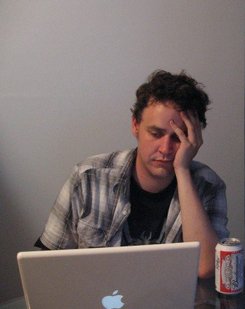 Bob Kerr Bob KerrPhoto by Craig Brown Comedian, actor, and writer, Bob Kerr is currently a writer on CBC's award-winning This Hour Has 22 Minutes which earned him a Gemini nomination. He was a founding member of the 12-man sketch troupe The Sketchersons which earned three consecutive nominations for the Canadian Comedy Award. He has written for Cream of Comedy (Comedy Network), a segment for CBC Newsworld Live (CBC), Comedy Inc. (CTV), Nikki Payne's Funtime Show! (Comedy Network Special), and Hotbox (Comedy Network). Bob also co-wrote and performed in the short film, The Funeral, which screened at the Sundance Film Festival and CFC Worldwide Short Film Festival in 2008. In 2011, Bob participated in the CFC/Telefilm Comedy Lab for a horror-comedy feature film script that he co-wrote entitled The House They Screamed In. You can follow Bob on Twitter. RUSTY TALK WITH BOB KERR Kathryn Mockler: What is your first memory of writing creatively? Bob Kerr: As a fan of Letterman, I would write my own Top Ten Lists and read them to my fellow kids at the back of the bus. I also wrote stories that were a direct inspiration of movies I was into. I wrote a story that was about a baseball team that was trapped within a (Jurassic Park-type) jungle and the star pitcher was bitten by a "gypsy hamster" that turned him into a (Pet Sematary 2-style) zombie. Really dumb. KM: When did you first start writing for film/TV and how did you get into it? BK: I was a member of a comedy troupe called The Sketchersons, and we did a weekly show called Sunday Night Live which heavily borrowed from the format of Saturday Night Live. I had done the Weekend Update part of the show for a large part of the time. Producers who saw the show asked me to submit things. My first writing gig was a for a late-night talk show pilot that didn't go anywhere and that was followed by my first trial run at This Hour Has 22 Minutes. KM: Was there a writer or filmmaker that had a big impact on you? BK: It was mainly performers, actually. David Letterman and Conan O'Brien were big influences. They do what they want to do. And a lot of it's really weird, and I like weird things. KM: How does the writing room work for This Hour Has 22 Minutes? BK: Early in the week, we pitch sketches and spend the whole day and night writing them. After the table read, sketches are picked and then the following days are focused more on copy jokes (a.k.a. news jokes...y'know, the set-up-punch stuff) and things called ledes, which is writing jokes around actual news footage. We sometimes pair up on sketches, but there's a lot of independent writing. My favourite days are writing copy jokes because we have table reads of those jokes amongst the writers and we have a couple laughs. Sometimes even more. KM: For someone looking to get into TV or comedy writing, a writing room—especially a comedy room—can seem intimidating. Do you have any advice for how to get over feeling like an idiot if your joke fails or no one likes your ideas in the room? BK: Trust me, I know what it's like to feel like an idiot. I've had plenty of stuff bomb in the room. An important thing to remember is that you're in good company; everybody bombs. Bombing is a very key part of the writing process. Because you learn from it. Mainly what works and what doesn't. So ultimately, don't dwell on feeling like an idiot. Because you will miss the bomb lesson. It's not about you! Get over yourself! Move on! (I feel like I'm talking to myself now.) KM: What is your writing process like for your other projects—other collaborations or solo projects? BK: Typical; go to coffee shop, order an Americano and stare at my computer screen. Collaborations can be fun if you're doing it with the right person. Someone that you feel comfortable bouncing ideas with. KM: What is the biggest difference between writing for film and writing for TV? BK: You spend way more time with a film script than a TV script. There's pros and cons to both. With TV, you don't have all the time in the world to make "the perfect script", so there's not much time for rewrites. You are also forced to write a lot and quickly and that kind of pressure is good. I think you get better stuff from that. Plus, there's a whole writing room that will punch up your ho-hum material. Again, it's not about you. KM: When getting notes from producers/story editors/show runners—what do you do when you get a note that you don't like or don't agree with on your script? BK: Well, there's two ways to go about it. You either don't make the change and pray they don't notice (which they usually do), or you talk it out with said note-giver. That being said, pick your battles. One thing I've learned in TV is that I can't be too precious with anything I write. With 22, there's not a lot of time, because I'm most likely onto something else. Plus, it's hard to feel precious about something I've worked on for a couple of hours the night before as opposed to something I've been working on for weeks or months. KM: Do you have any advice for someone aspiring to write for television? What is the best way to break in? BK: I don't know what the best way is. I only know my way. I was tenacious and I wrote a lot of stuff. I was out there performing with a great troupe every week on top of doing stand-up and I was getting myself seen. It's a lot of work to get a job. There's also the standard advice: Write spec scripts, get an agent, write more spec scripts. KM: What are you working on now? BK: I'm going to be returning to Halifax for the 20th season of This Hour Has 22 Minutes. I'm currently working on a spec pilot as well. I'm also trying to think of a funny tweet.
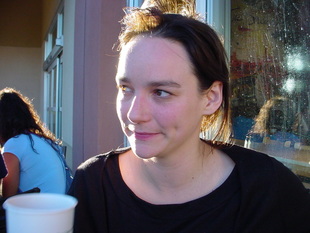 Semi Chellas Photo by Kate Ware Semi Chellas is a writer and supervising producer on the sixth season of TV’s Mad Men. She is nominated for two Emmys (with Matt Weiner) for her episodes in season five, “Far Away Places” and “The Other Woman”. She is also adapting Dr. Jill Bolte Talyor's best-selling My Stroke of Insight for Imagine Entertainment. Semi was the Executive Producer and Co-Creator of Canadian prime-time network drama THE ELEVENTH HOUR, two-time Canadian Academy of Cinema and Television winner for Best Series. The show ran three seasons and was nominated for 38 awards by the Canadian Academy, winning 9; Semi herself won for Best Writing (with Tassie Cameron). As a director, she's had three short films premiere at The Toronto International Film Festival: Green Door (written by Barbara Gowdy); Trouser Accidents (included in the Best Canadian Short Films Showcase) and Three Stories From the End of Everything (nominated by the Canadian Academy for best live-action short). RUSTY TALK WITH SEMI CHELLAS Kathryn Mockler: What is your first memory of writing creatively? Semi Chellas: I wanted to be a writer as soon as I knew what that was. My mom was a freelance journalist and she had set up a little desk for me next to her desk. I must have been five or younger, and I had her taking dictation for this book I was working on that involved a lot of puns. When I was 7, I wrote a novel in twenty 3 by 5 spiral notebooks—it was the story of a girl with a tail who lived in a country where people with tails were enslaved. And basically she was trying to get Han Solo to smuggle her out of there. I submitted a story to The New Yorker when I was 16 and got a hand-written rejection. Later I think it became a liability for me. I had to get rid of the romantic ideas I had about being a writer and actually learn to write. The best advice I ever heard about writing was “get dressed every day”. KM: Why did you become a writer? SC: It’s a bit of a cliché I think, but there is no why. I just always wrote. KM: Was there a writer or filmmaker or screenwriter that had a big impact on you and your writing? SC: When I was a kid, in the ‘70s, my grandfather and his wife lived next door to Ann Beattie in Connecticut. I just read that during that decade she had 35 stories in The New Yorker. She was an original and had invented a whole new style. Plus she was tall and funny and had long swingy hair and I loved her. My grandfather, to my mortification, told her I was writing stories. And she asked to read one of mine, and there was a dog in it. She read it very gravely and asked me questions instead of giving me false praise, or acting like it was cute that I’d written it. Then she gave me a copy of her latest collection, Distortions, and she had inscribed it to me and ticked off in pencil all the stories with dogs in them. And I felt like she was treating me like a fellow writer—that we were actually having an interaction that was beyond just me being a little kid who was in awe of her. Of course I was completely deluded. But I read every story in that collection a hundred times and tried to understand how they were so good, and that was an enormous influence on my writing. KM: What is writing process like for you when you write alone? How do you approach revision? SC: I like to have big chunks of time when I write but that always used to lead to a lot of procrastinating, because I’d think, Well, it’s almost noon and I haven’t written anything so what’s the point of starting? Then I was at a dinner party with a famous fiction writer who was talking about how her daughter, a graduate student, had finished her dissertation after reading a book called How To Finish Your Dissertation. And this book was written by a brain specialist whose whole thing was that creativity comes in 90-minute bursts. After that, the brain needs to rest for 30 minutes. And two or three of these bursts was a good day’s work for a creative person; if you’re spending eight hours at the computer in the day, it’s really only two hour and a half periods that count. This changed my life. I started working in 90 minute windows, where I would completely block everything out—no phone, no text, no Googling or internet, no changing the music. And I started doing this with friends—we’d go somewhere and sit across from each other and work for 90 minutes and then take a break for a half an hour. And it’s incredibly effective. Then one of my friends asked about this book and we went looking for it and I swear it doesn’t exist. I don’t know if the writer made it up, or her daughter made it up, or something, but there is no truth to that 90-minute theory. But I guess it imposed discipline on me that I needed. I still do it. KM: Could you describe the journey from your first TV writing job to writing for Mad Men? SC: A long time ago, I wrote a movie that ended up getting made for television. And it won a lot of awards, so even though I’d never written for television before that, I was approached to develop an idea for a series. So with a producer friend Ilana Frank, I created the show that became The Eleventh Hour, and it got ordered, and then suddenly Ilana and I were running this TV series. And neither of us had done episodic TV at all. It was really like getting thrown in the deep end and learning to dogpaddle to the side—over and over and over every week. The series turned out great, and I’m very proud of it. After that I didn’t want to work on a TV show for a long time. But I always said to my agent that if there was ever an opening on Mad Men, he had to get me the meeting. And then there was, and he did. KM: How does the writing room work on Mad Men? How does this differ from the other shows you’ve worked on? SC: Matt Weiner, the creator and showrunner of Mad Men, comes in at the beginning with a vision for the season. He lays out themes, character arcs and the time period. He’ll give us books to read, he’ll read us poems or passages, he’ll show us images. Then we work together as a room on every story—you don’t know if it will be your script until the outline is finished, and it’s an incredibly detailed document. The people in the room are amazing—people who’ve run shows, comedy and drama writers, advertising people from then and now. Writers in their 20s who worked up from being Matt’s assistant. Last season, a writer in his 80s—the late great Frank Pierson, who wrote, among other masterpieces, Dog Day Afternoon. KM: Writing for TV is a collaborative effort. What is the best way to deal with conflicts when writing with others? SC: Be professional. Don’t make it about you. Be clear about the chain of command. There are always going to be differences of opinion, but there shouldn’t be conflicts. KM: When getting notes from producers/editors/showrunners—what do you do when you get a note that you don’t like or agree with? SC: Look at what the note is addressing. The solution being offered may be wrong. But the problem it’s identifying may exist nonetheless. KM: What is the best piece of writing advice you’ve been given that you use? Besides “get dressed every day”? The best piece of writing advice I ever got was from an editor, who said when a scene’s not working, the problem is usually actually in the scene right before it. KM: What are you reading right now? The book by my bed is The Collected Stories of Peter Taylor. I read somewhere that Ann Beattie admired him, and I’d never read him. And I like to read publications from the year we’re working in on Mad Men--Time, Life, Newsweek, The New Yorker, the Times, Playboy, Harpers. I read the same magazines I would now but from dates back then. Clips from Semi Chellas and Matthew Weiner's Emmy-nominated Mad Men Episodes: 506 (Far Away Places) and 511 (The Other Woman)
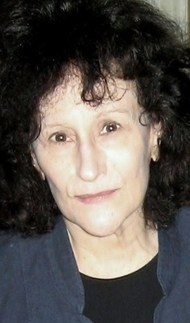 Lynne Tillman Lynne TillmanPhoto by Julia Jackson Lynne Tillman's latest book is Someday This Will Be Funny, a collection of short stories, published by Red Lemonade Press (2012). Her most recent novel is American Genius, A Comedy, published by Soft Skull. She is the fiction editor at Fence Magazine and Professor/Writer-in-Residence in the Department of English at the University at Albany. RUSTY TALK WITH LYNNE TILLMAN Kathryn Mockler: What is your first memory of writing creatively? Lynne Tillman: When I was eight, I wrote a composition about Charlemagne. My class was asked to write just one. But I got carried away, and wrote two. That thrill, rush, gave me a sense of power, freedom, pleasure—an eight year old's version. KM: Why did you become a writer? LT: I don't know why. I could give you reasons, but I really don't know other than to say that, when I was eight and wrote those little compositions, I loved it. I felt I was good at it, and decided right then to be a writer. KM: Could you describe your writing process? LT: I'm erratic. I don't have an everyday practice, except when I want to do it, want to write it, whatever it is. Then I become compulsive, and sit at my desk, at the computer, for hours without moving. Except for getting a cup of tea. But I can forget to eat, and begin to feel heady, dizzy. This is not great for the body, but I love that intensity, concentration, being inside what I'm writing. KM: Rejection or criticism can often stop new writers before they start. Do you have any advice on how to deal with rejection? LT: Rejection is different from criticism. Constructive criticism can help, but sometimes it's hard to handle, especially when you're just beginning to show your work. Rejection can be hell. Writers have to know that. But it's always miserable. I have no advice other than to say we all go through it, and if you can't get through it, you can't show your writing to others for publication. KM: What writers would you recommended to an aspiring writer? Or what writers were influential to you when you first started out? LT: Most important is how you read as a writer, not what you read. Reading crap is just boring. There are many good writers, fewer great ones; but if a writer reads critically, she can learn how it's done, and what she likes or doesn't and why. It aids in making choices if you know there are choices. KM: What is the best literary advice you've gotten that you actually use? LT: "Take your reader by the hand." My older sister told me that when I was 12. KM: Your favourite literary moment, if you have one. LT: Maybe my favourite moment was when the great writer Harry Mathews read aloud a piece I had written anonymously, because I was so insecure, to an audience at St. Mark's Poetry Project. I was astonished, surprised, happy, embarrassed; but it got some laughs, and gave me some courage. KM: What are you working on now? LT: A novel, my sixth, if I ever finish it. Right now I'm calling it Clouds and Apparitions, but Clouds may go. Not sure yet. LYNNE TILLMAN'S MOST RECENT BOOK Someday This Will Be Funny, Red Lemonade, 2011 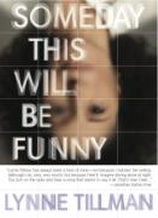 LYNNE TILLMAN AS AUTHOR PHOTO The black-and-white pencil drawing on the reverse of Someday This Will Be Funny shows a woman with a long, oval face, a thin nose, a strong chin, and a cloud of apparently blonde, curly hair. The black-and-white photograph on the flyleaf of the story collection Absence Makes the Heart shows the same woman, twenty-one years ago—the same thin lips, the same elegantly elongated nose. The woman looks like Glenn Close. She looks so much like Glenn Close, especially Fatal Attraction, Alex Forrest–era Glenn Close, that I spend at least fifteen minutes comparing results in Google image search. In color everything is clearer. The woman is Lynne Tillman. It’s funny that for a second I saw Alex Forrest—powerfully, primally, dangerously sexual, a female menace—one of those synaptic errors that later make a sort of sense, a tired brain conflating a time period, a radically direct portrayal of female sexuality, an aureole of hair. Or an error that later will simply be funny. Someday this will be funny. From The Literary Review, "Ruth Curry A Collection of Thoughts on Lynne Tillman, on the Occasion of the Publication of Her Twelfth Book, Someday This Will Be Funny" Lynne Tillman's characters inhabit language the way others live in rooms and cities. It's not that they are made only of words—all literary characters are—or that they don't have their own versions of material longings, needs, attachments, and obstructions. What's different is that they are attuned to language. They fraternize with words even when they are not talking. They treasure clichés and ready-made phrases as if they were messages or hints, turning them over to find their wisdom, or at least the joke wrapped inside them. In her collection This Is Not It (2002), when a woman makes a "last-minute decision," she very soon wonders what a "first-minute decision" would look like. There is an echo of this thought in Tillman's new story collection, Someday This Will Be Funny: "The decisive moment was an indecisive one for her." We instantly start adding up our own moments of that sort, finding far too many. From Bookforum, "Words to Live By: Comic stories interrogate reality, history, and language itself" by Michael Wood Despite the claim of the title, “Someday This Will Be Funny,” you wouldn’t want to reach for Lynne Tillman’s new book just for a good howl. In fact, that “someday” the title promises may never come. Tillman’s stories are too piercing, the obsessions of her characters too connected to their psychic wounds, for them to be considered exactly “funny.” In any case, it isn’t “someday” but rather “meantime” that counts for readers. And in the meantime, Tillman’s fictions tend to be (to steal a line from one of her stories) as “outrageously ineffable, obdurate and evasive” as the forms of desire they describe. Gorgeously at ease and technically virtuosic, the stories are ever on point — on point, that is, if the point of your reading has more to do with psychological nuance and bravura performances of language than with conventional story lines. From The New York Times Sunday Book Review, "Lynne Tillman’s Innovative Stories" by Forrest Gander |
Rusty Talk
Rusty Talk Editor: Archives
November 2017
Categories
All
|

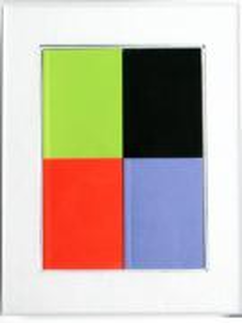
 RSS Feed
RSS Feed
